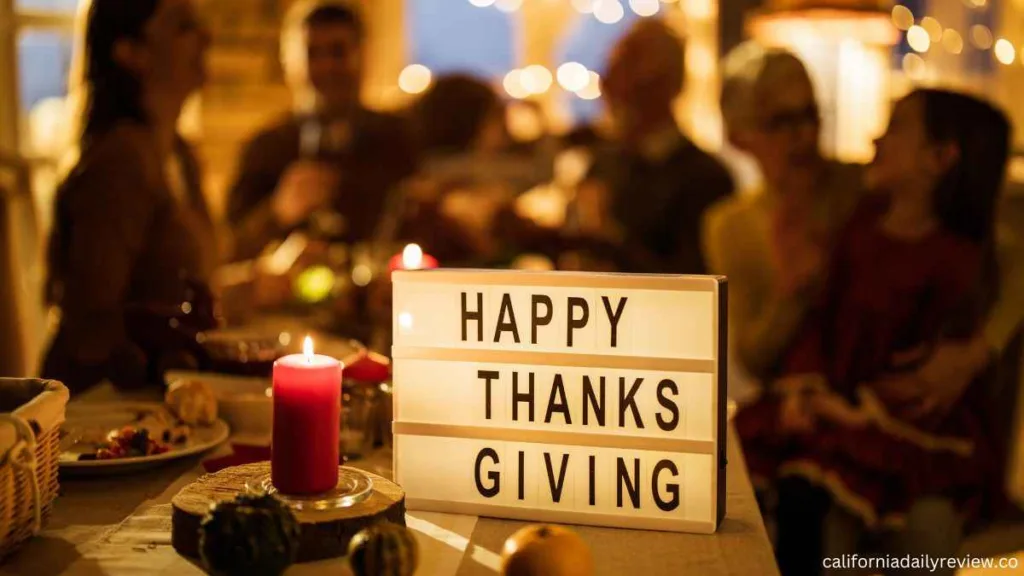As Americans gather to celebrate Thanksgiving, the traditional joy of the holiday is tinged with unease due to ongoing world events. The conflict between Israel and Hamas in Gaza has prompted heightened security measures across the United States, adding an air of tension to the normally festive occasion.
Extra precautions are being implemented at airports, shopping malls, and along the route of New York’s iconic Macy’s Thanksgiving Day Parade in response to the Middle East conflict. Thanksgiving, a quintessentially American tradition, typically involves bringing together family and friends for a turkey dinner, watching parades, and enjoying American football on TV. Additionally, it signifies the peak of travel and the kickoff of the holiday shopping season on Black Friday, serving as economic indicators.

Americans celebrate Thanksgiving
However, this year’s festivities unfold against the backdrop of the Israel-Hamas conflict, which has triggered a surge in antisemitism and Islamophobia in the U.S. The FBI has issued a warning to Congress about the elevated threat of terrorist attacks, marking the highest level in nearly a decade.
Reflecting the prevailing anxiety, a fiery car crash on a U.S.-Canadian border bridge raised concerns on Wednesday, although officials later clarified that it had no connection to terrorism.
Addressing potential protests during the Macy’s parade, New York Mayor Eric Adams emphasized the city’s commitment to respecting free-speech rights while expressing zero tolerance for any disruptions.

While New York police reported no specific or credible threats, the atmosphere of caution persists. Mayor Adams encouraged New Yorkers and visitors to embrace the holiday spirit by spending money, yet retailers remain apprehensive about economic demand during a potentially lackluster holiday season.
The historical significance of Thanksgiving established as an official holiday in 1863 during the American Civil War by President Abraham Lincoln, adds a layer of context to the celebration. The day was proclaimed as an occasion to give thanks and seek healing. However, for many Native Americans, Thanks giving is a day of somber reflection on the subsequent genocide that followed the Pilgrims’ arrival in 1620 and their celebration of the autumn harvest with the Wampanoag people.

Q1: What is the significance of Thanksgiving Day?
Q2: Why is Thanksgiving Day celebrated on the fourth Thursday of November?
Q3: What are some traditional dishes served on Thanksgiving Day?
Q4: How do people typically celebrate Thanksgiving?
Q5: Are there any special traditions associated with Thanksgiving?
Q6: What is the historical background of Thanksgiving, and how do Native Americans perceive the holiday?
Disclaimer: This article is auto-generated from CHatGPT.






Comments are closed.